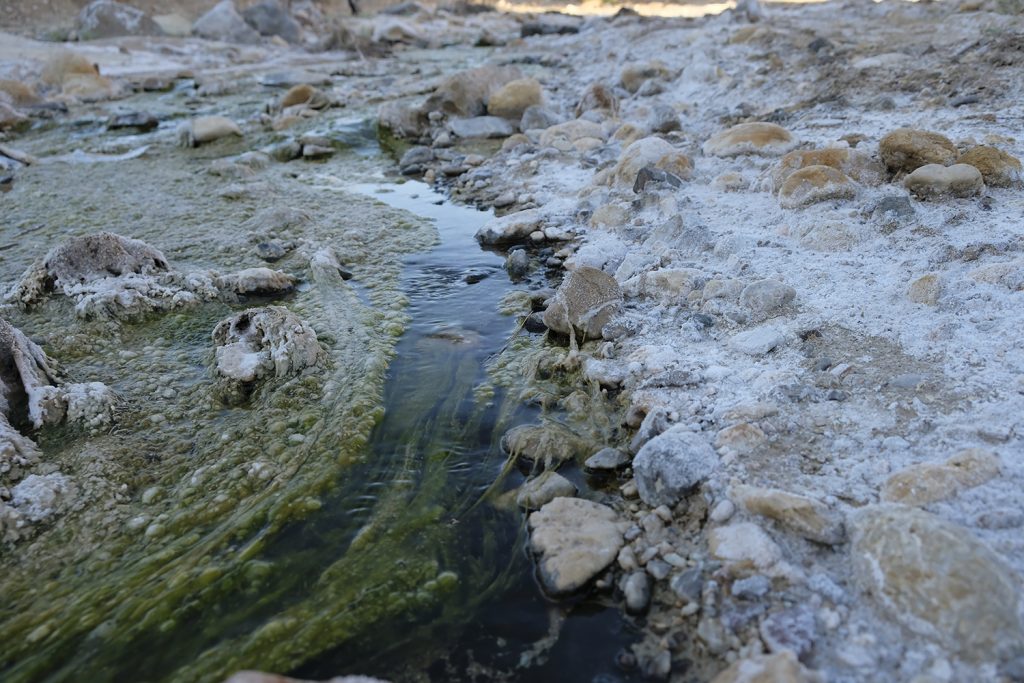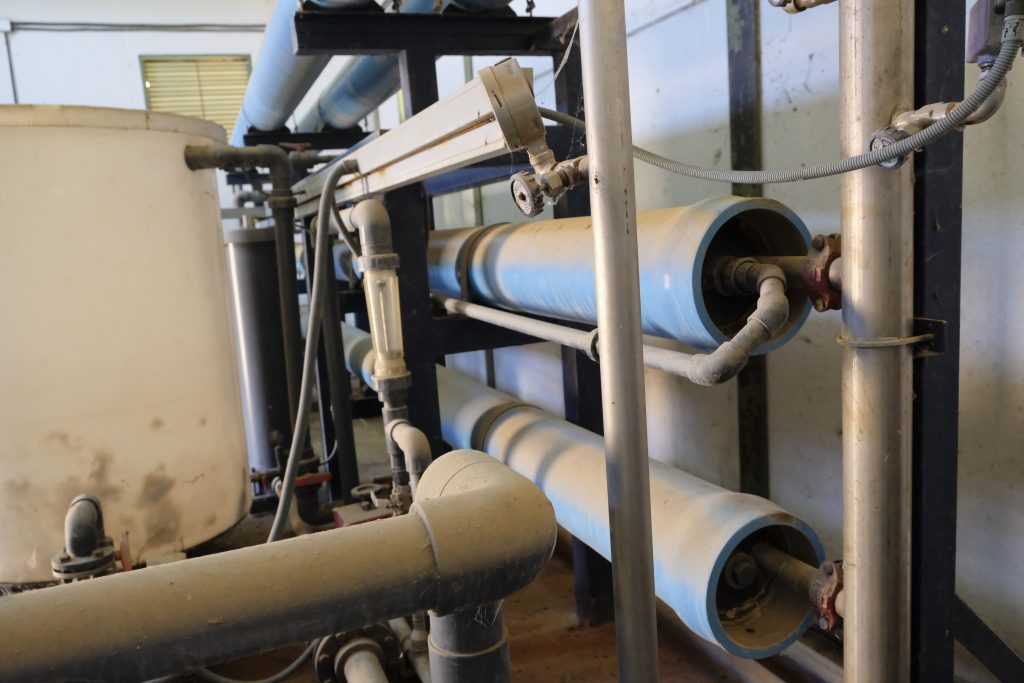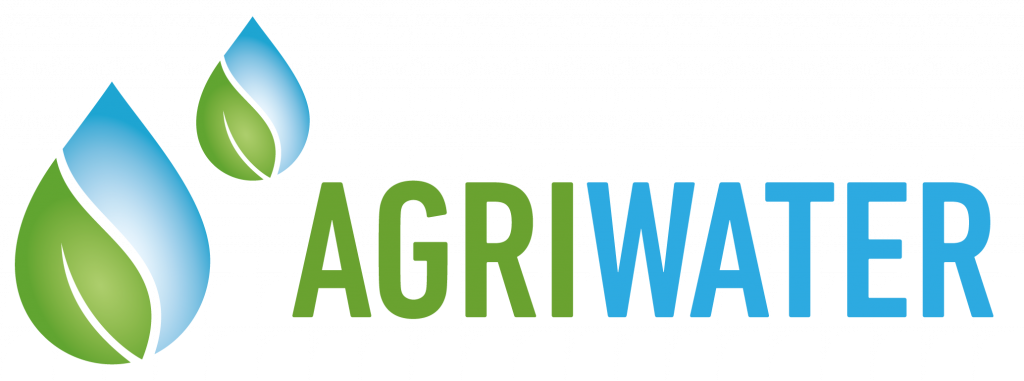Farm area/size of the organisation:
Number of workers:
Farm main activity:

This farm has combined three sources of water to ensure availability. In 1990, they started using high salinity mine water thanks to a reverse osmosis desalination plant.
In 2000 they built a dam on a stream running through their farm, with a sediment pond and a storage pond (45 million litres).
In 2008 they joined a community of irrigators that pumps water from the Guadalquivir to a reservoir since they are also beneficiaries of that water.
The drippers are inserted in a circular pipe around the tree, with several integrated drippers, a very suitable system for their soil for better use by the plant.
The aim was to have available water enough to convert the management system from rainfed to irrigated, guaranteeing sufficient water supply in the future to irrigate the entire farm.
Thus, the irrigation system has tried to prioritise efficiency through drip irrigation, with integrated drippers.
In the beginning, they had 30 ha of rainfed olive groves and a mining well with salt water at their disposal. They therefore installed a reverse osmosis desalination plant.
As they grew to 70 ha, their water needs increased, and they looked for less energy-demanding systems; they built a dam on the farm and later joined the irrigation community.
They have provided them with consultancy services with technical studies implementation of the desalination plant, calculations for the construction of the ponds and installation services for the equipment and pumps.
The irrigation community, which has allowed them to jointly undertake the works for the transfer and pumping of water.
The desalination plant required a piston pump to enable reverse osmosis at pressures of over 60 bar, with very high energy consumption.
The cofferdam required land clearing to enable a capacity of more than 45 million litres, the base of which was waterproofed with polyethylene.
The Irrigation community required 9 km of piping to bring the water from the Guadalquivir and pumps capable of filling the pond from which 2000 ha are irrigated.
The use of a desalination plant is not so common as in coastal zones for domestic supply or for irrigation of horticultural crops.
The community constitution to undertake investments and improve the use of the resource is another form of social innovation and financing.
The first success factor is to make decisions and undertake improvements to overcome the limitations of the farm.
To have financial resources available to undertake the measures described above, adapting the improvements to their financial capacity.
Climatic conditions are limiting, with low rainfall and extremely hot summers.
In addition to the scarcity of water, the available groundwater contains high levels of salinity, rich in chlorides.
The orography of the estate makes tillage difficult.
The financial requirements for the measures have been significant.
Certain technologies such as the desalination plant have become obsolete; there is now more energy-efficient equipment, smaller in size and with a higher daily filtration capacity.
With dedication and effort, they have sought solutions to most of the above constraints, trying to ensure the availability of quality water.
Maybe in the future, they can transform energy sources towards sustainable solar-based systems.
When facing constraints, solutions can always be found. It will depend on economic or legal factors, but it is possible to find innovative ways to achieve a goal.
The availability and adequacy of resources to these objectives is fundamental, and associative solutions should always be considered as a response.
Efficient use of water through drip irrigation systems. They use bands with integrated drippers (2.4 l/h), with a flow per tree of 16 l/h and an annual allowance per hectare of 1500 m3. Multiple emitters per tree allow a larger wet area and better water availability for the plant.
The system allows the use of much lower water allocations than those required by other crops or less efficient irrigation systems.


AGRIWATER project has been funded with the support from the European Commission, with the reference number 2020-1-CZ01-KA204-078212. The content of this website reflects the views only of the author, and the Commission cannot be held responsible for any use which may be made of the information contained therein.

At AGRIWATER we take the protection of your personal data very seriously. Our purpose is to protect the privacy of the data you provide us and to comply with the current regulations on the protection of personal data.
In compliance with the Act 3/2018 of 5 December on the Protection of Personal Data and Guarantee of Digital Rights transposing Regulation (EU) 2016/679, we inform you of the following information about our privacy and data protection policy:
The organization responsible of your data is Asociace soukromeho zemedelstvi Ceske republiky, ID E10133738. This is a non-governmental organization located in Prague, Czech Republic.
Address
Samcova 1177/1
11000
Praha 1
Telephone
+420266710413
+420266710414
Email contact
marketa.sandova@asz.cz
The legal basis for the treatment of your data is the consent of the data subject under article 6.1 a) of the Regulation, as well as the legitimate interest of the data controller under article 6.1 f) of the Regulation.
The data we request from you are adequate, relevant and strictly necessary and in no case are you obliged to provide them to us, but their non-communication may affect the purpose of the service or the impossibility of providing it.
Your data will be kept for the time required for the proper provision of the service offered, as well as to meet the responsibilities that may arise from it and any other legal requirement.
In the course of processing your data, Asociace soukromeho zemedelstvi Ceske republiky may share your data with:
On Projects Advising SL, as web management and maintenance service providers.
The controller retains the right to restrict the rights set forth in Article 23 of the EU Regulation, if such restriction is provided to safeguard, in particular fundamental rights and freedoms and is a necessary and proportionate measure.
If any interested party considers that their data are not being treated correctly, they can send their complaints to the following e-mail address; kristyna.strnadova@asz.cz, Asociace soukromeho zemedelstvi Ceske republiky.
The data subject declares to have acquired all this information.

A cookie is a file that is downloaded and executed on your computer, phone, or mobile device when you access certain web pages. Cookies allow a website, among other things, to store and retrieve information about user’s browsing habits and recognize the user depending on the information they contain and the way they use their computer.
Cookies do not harm your computer and are necessary to facilitate navigation.
Cookies are necessary for our website to work properly. The purpose of our cookies is to improve the user’s browsing experience. They can be used to remember your preferences (language, country, etc.) during navigation and on future visits.
The information collected in the Cookies also allows us to improve the website and adapt it to the individual interests of users, speed up searches, etc.
Analysis Cookies: These, if they are used properly by us or by third parties, allow us to quantify the number of users and thus perform the measurement and statistical analysis regarding the users’ usage of our service.
Advertising Cookies: These, if they are used properly by us or by third parties, allow us to manage as effectively as possible the supply of advertising space on the website, adapting the content of the advertisement to the content of the service requested or to the use you make of our website.
Our cookies do not store information about your personal identification, address, password, credit or debit card details, etc.
The information stored in the website’s cookies is used exclusively by us, apart from those identified below as “third party cookies”, which are used and managed by external entities to provide us with services to improve our own services and the user’s experience when browsing our website.
Third party cookies are mainly used to obtain statistics and to guarantee the payment operations are carried out.
Yes, firstly, you must disable cookies in your browser and, secondly, delete the cookies stored in your browser associated with this website.
You can restrict, block, or delete cookies from this website at any time by modifying your browser settings. This setting is different for each browser. For more details on the configuration of cookies in your browser, please consult your browser’s “Help” menu.
It is possible that some of the website’s features may no longer work if you disable cookies.
These Cookies are used to identify the user during the session, prevent the user from having to repeat authentication processes on the website, speed up some website processes, remember selections made during the session or on subsequent accesses, remember pages already visited, etc.
COOKIES
PURPOSE
DURATION
MANAGEMENT
User identification
They are used to identify and authenticate the user. They also contain technical data from the user session, such as connection timeout, session identifier, etc.
Session
AGRIWATER
Session identification
They identify the user’s http session. They are common in all web applications to identify requests from a user’s session.
Session
AGRIWATER
Navigation status
They help identify the user’s browsing status (login, first page, first access, scroll status, voting status, etc.).
Session
AGRIWATER
These Cookies obtain generic information about users’ accesses to the website (not the content of the same) to subsequently provide us with information about these accesses for statistical purposes.
COOKIES
PURPOSE
DURATION
MANAGEMENT
Google Analytics (__utma, __utmb, __utmc, __utmd, __utmv, __utmz, _ga…)
They allow website statistic’s tracking through the Google Analytics tool, which is a service provided by Google to obtain information about user access to websites. Some of the data stored is: number of times a user visits the website, dates of the user’s first and last visit, duration of visits, from which page the user accessed the website, which search engine was used or which link was clicked, from which part of the world the user accessed the website, etc. The information generated by the cookie about your use of the website will be directly transmitted and stored by Google Inc (a company located in United States). The configuration of these cookies is predetermined by the service offered by Google, so we suggest you consult the Google Analytics privacy page, for more information on the cookies it uses and how to disable them (keep in mind that we are not responsible for the content and accuracy of third-party websites).
Persistent
Third Parties